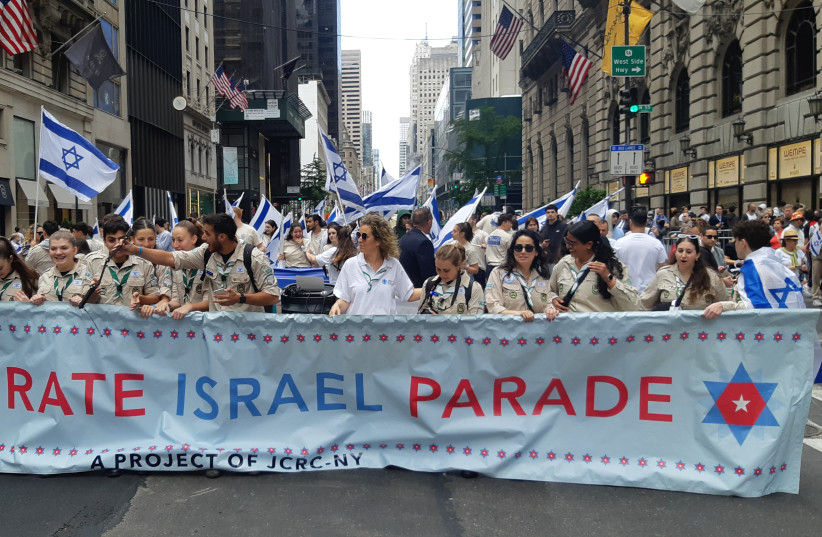On October 7, Israel experienced a pogrom, a targeted massacre intended to destroy as many Jews as possible. The trauma is still raw, and many displaced Israeli families are still living out of suitcases. Moreover, the attack and its aftermath did not merely affect Jews living in Israel.
Jews in the Diaspora are feeling isolated, other-ed, and forced to endure a new wave of antisemitism.
Historically, connection between Jews in Israel and those in the Diaspora has been a mitigant to seclusion and an accelerant to peoplehood. Today, with travel limited, especially for organized teen trips, external factors are making those connections more difficult to foster and sustain. How do we build these connections now?
In the last few months, Jewish leaders and educators have rightfully been thinking about how Jewish education and Israel education must evolve post-October 7. Israel travel experiences and curricula on Jewish history and modern Israel are being looked at anew. Along with these important aspects of education, we want to elevate the importance – now more than ever – of mifgashim, cross-cultural encounters. These personal relationships between young Diaspora Jews and young Israeli Jews will be critical in building a Jewish future in which youth find meaning and meaningful connections.
Mifgashim have existed in numerous Jewish settings – camps, schools, service programs, and Israel travel – with outcomes proven over decades. This web of personal relationships across Jewish societies creates cross-cultural frameworks, which foster a shared consciousness of peoplehood and belonging. We certainly see these outcomes with ENTER’s One2One initiative, a mifgashim program that relies on technology to build connections. In peacetime, mifgashim are structured around the defining elements of Jewish peoplehood, including mutual responsibility and a shared sense of belonging.
Israelis need encounters with Diaspora Jews as much as the other way around
In wartime, such opportunities can foster empathy, counter misinformation, break down stereotypes, and foster a sense of personal responsibility for the Jewish future. Undoubtedly, for young Diaspora Jews experiencing virulent antisemitism for the first time in their lives, these relationships can feel therapeutic and create safe spaces. They also can help these young Jews navigate questions of identity and expectations around Jewish solidarity.

While Diaspora leaders and educators often focus on the influence of mifgashim on Diaspora youth and young adults, we have long known of the positive outcomes on Israelis. Post-October 7, Israelis need mifgashim more than ever. Investing in relationships can chip away at Israelis’ sense of isolation and insecurity during such a traumatic time. This reality invites us to think about interactions between Jews in the US and those in Israel as a form of “first aid.”
With looming uncertainties, innovative, virtual frameworks take on even greater importance. As antisemitism permeates social media and seeps into high schools as it already has on college campuses – and as Israeli teens feel ignored by the world around them – we cannot wait for the college years for critical, interpersonal interaction; there is increasing interest from teens to pair with a havruta (partner) who understands what she or he is going through.
THIS DEMAND on the ground aligns with research showing that young people are eager to connect with each other and shape their own future with experiences in which they find meaning and purpose. Investing in mifgash frameworks, as we know from summer camp cross-cultural encounters or from programs like Birthright, creates pathways that stimulate interest in Jewish learning, Jewish ideas, and our expansive Jewish cultural milieu.
Fostering connectivity, including peer-to-peer relationships, is also an opportunity for North American Jewry to demonstrate its collective concern in ways that are non-partisan, supportive, and unvarnished. These efforts are about people, not talking points.
Three years ago, during the worst days of the pandemic, ENTER had this mindset when it established the One2One initiative to address the lapse in connection at that moment. The program began with 600 participants in 2021 and expanded to 2,500 in 2022 and 4,100 in 2023.
Today, there are more than 4,000 Israeli teens in schools across Israel who have signed up and are waiting for North American counterparts to join them in conversation. The outcomes of these conversations evidence greater connection, knowledge, and friendship for both partners. Young people find such opportunities edifying and enriching.
Put in different terms, we would rather have our teens’ most memorable exposure to Israel be through a one-on-one relationship with an Israeli peer rather than a YouTube video, internet meme, or social media post. Building personal connections between Israeli and American teens is a support mechanism and educational system all in one. The demand from teens is there. Now it’s up to leaders and educators to make those connections possible.
Alon Friedman is the founding CEO of ENTER. Steven Green is a senior program officer at the Jim Joseph Foundation, a supporter of the One2One initiative.
